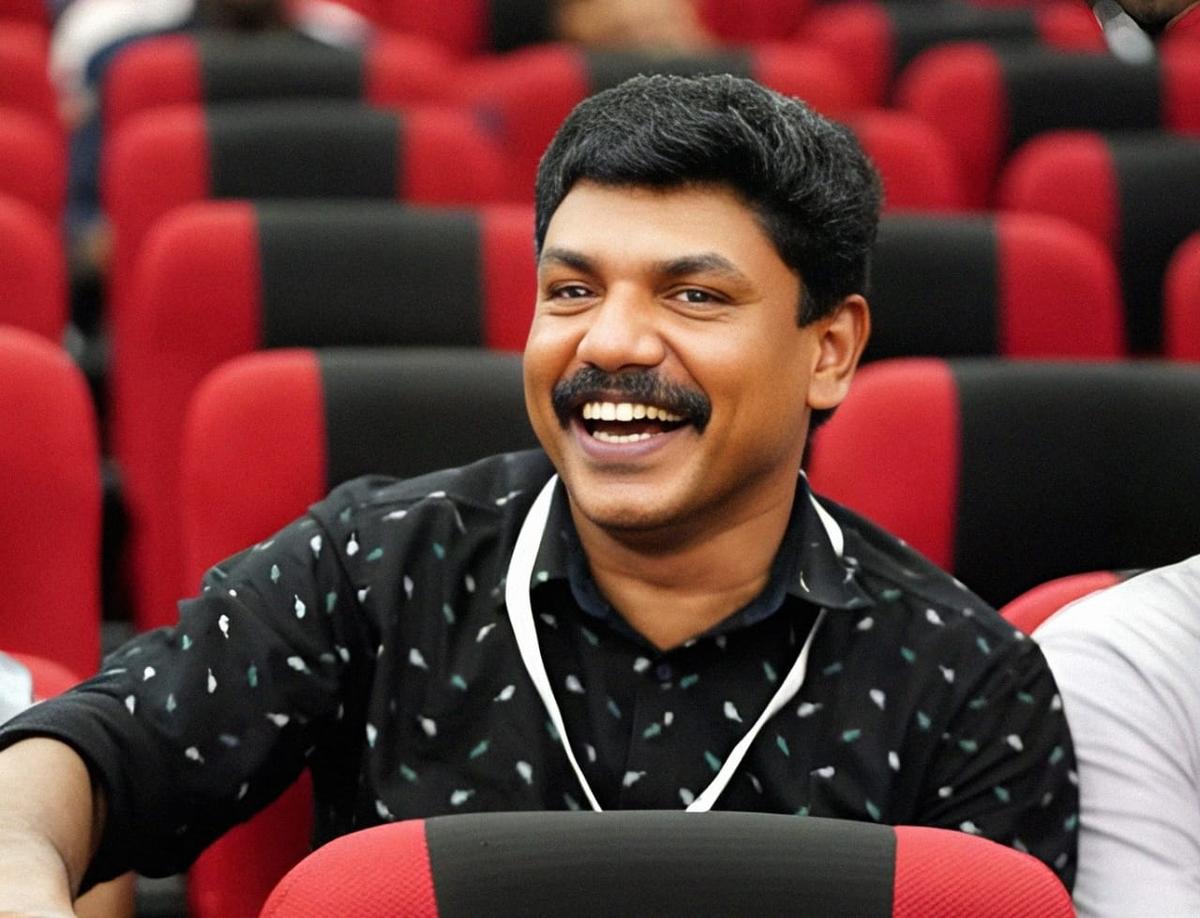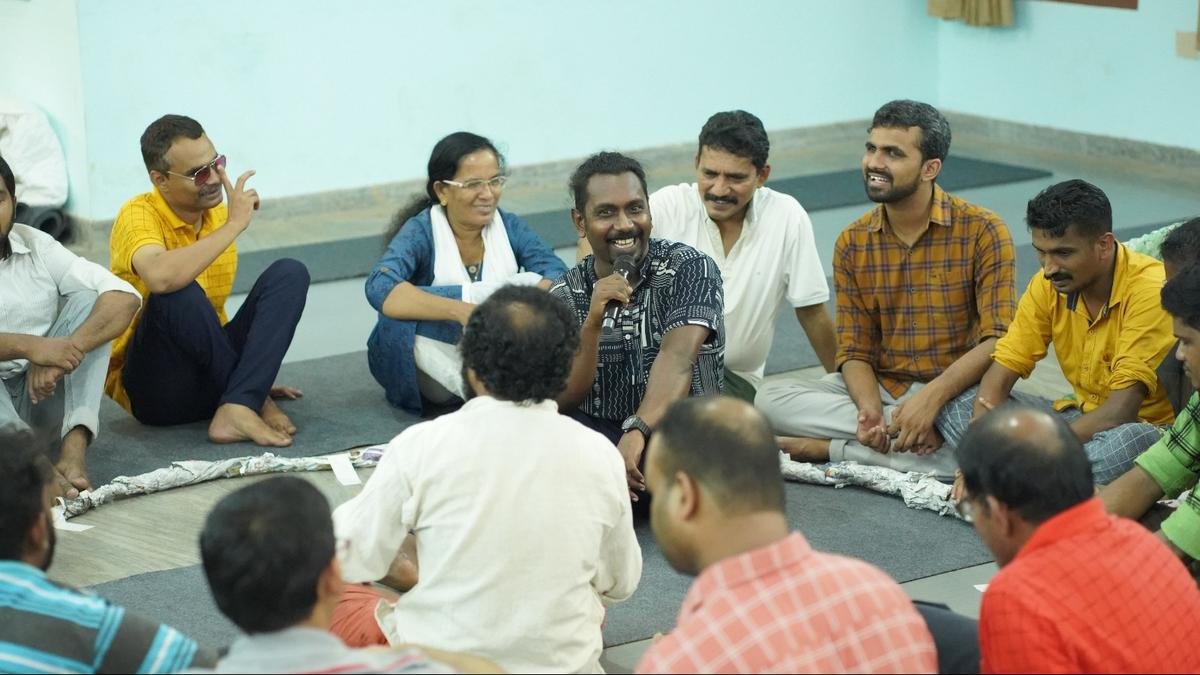
Sam George with participants of the community theatre workshop for visually challenged held in Thiruvananthapuram
| Photo Credit: SPECIAL ARRANGEMENT
It was in May last year that Loyola College of Social Sciences at Sreekariyam in Thiruvananthapuram hosted a community theatre workshop for the visually challenged. The 10-day workshop, perhaps a first-of-its-kind in the country, saw 21 participants being trained and staging two productions at the end of the workshop.
The documentary, Natakantham, directed by G Rarish, chronicles this path-breaking workshop. The good news is the documentary will be screened in the international documentary category at Cinema Palooza film festival to be held at Cali, Columbia, from July 25 to 27. Natakantham is the only documentary from India selected for the festival along with eight other international productions. The only other entry from India is in the short film category.
Participants at 3B Frames, a community theatre workshop for visually challenged organised in Thiruvananthapuram
| Photo Credit:
Sreejith R Kumar
The workshop, called 3B Frames, was organised by APT (A Place for Theatre), Ether India, an NGO, Kerala Federation of the Blind -Youth Forum and Loyola Extension Services. “Being a novel venture, neither the organisers nor the participants knew how it would turn out. And we shot it in such a way that it did not disturb the conduct of the workshop. While some visuals were shot using proper camera, some were taken on mobile phones. We were in for a surprise when we saw the participants overcoming their limitations and shining on the stage,” says Rarish, who had won special jury mention (director) for his first feature film, Vettappattikalum Ottakkaarum at the Kerala Film Awards 2023.
Sam George, artistic director of APT and the camp director, says, “There were several challenges. The tools that we use in theatre were not enough to train them. So we did research and came up with a module that adapted existing methods to suit their limitations.”
Among the trainers were theatre practitioners and artistes such as Premjith Sureshbabu, Janil Mithra, Shanu S, Anoop Mohandas, Reshma M, Sabitha Kadannappalli, Gopika and Alamelu KS.

G Rarish
| Photo Credit:
SPECIAL ARRANGEMENT
The documentary captures the gradual but impactful changes in the participants. “Their body had become stiff without enough movement. So the initial task was to make them aware of what their bodies could do and the importance of gestures as a means of communication. What they learnt became a habit for them in five days. That gave us and them the confidence to put up two productions,” the trainers say in the documentary.
The documentary has vignettes of how they were trained to respond to sound/voice. “They can judge how far a person is by listening to his/her voice,” Sam says.
Since each participant had different levels of visual disability it was not possible to arrive at a uniform method of teaching. So they were made to work with clay to understand their ability in recreating things according to their imagination.
Rarish, who has edited and produced the work, says, “It was amazing to see how the trainers made them understand space, that is how much to move, where to stand etc. For this floor mats of different textures were placed on the floor so that the participants could differentiate between spaces.”
One of the productions was a re-interpretation of the famous story of the blind men and the elephant, narrated by Ramakrishna Paramahamsa. The second production was based on physical theatre and had no dialogues. It was the participants themselves who composed the songs for the two plays.
3B Frames, a community theatre workshop for visually challenged organised in Thiruvananthapuram.
| Photo Credit:
Sreejith R Kumar
The poignant section of the documentary is the reaction of the participants. While some are thrilled at having fulfilled their dreams of becoming an actor, a few others express their surprise over realising their potential. One of them says, “For some days I forgot that I cannot see.”
Rarish adds that the workshop was a learning experience for the trainers as well. They developed a new theatrical language. “What excited me the most was how they are going to use their new-found talent in their lives. One of the participants, a teacher, said that he did not know the importance of body language and gestures in communication. Now he knows how to make his classes interesting. The new-found confidence in the participants was the best takeaway of the workshop,” Rarish says.
Published – July 24, 2025 10:40 am IST
